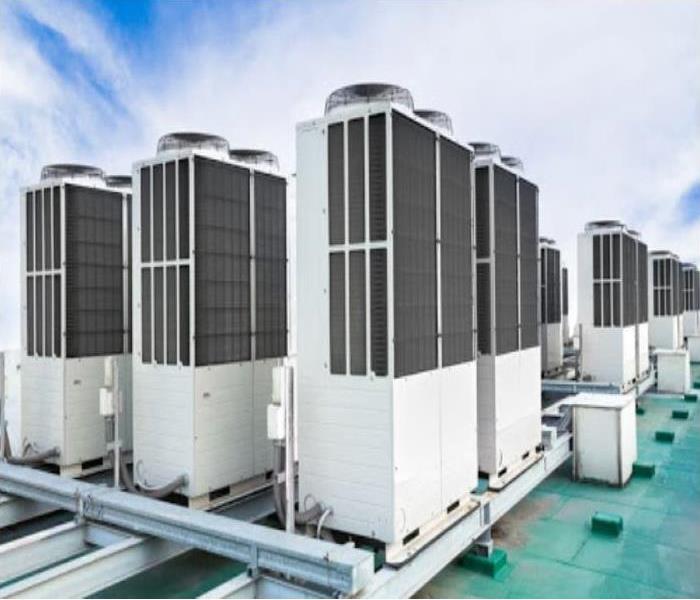Time To Check Your HVAC System
6/15/2021 (Permalink)
As facility-maintenance professionals prepare for summer, it is important they make sure evaporator-coil cleaning and maintenance is on their to-do list states John from SERVPRO of Roslindale/Hyde Park.
“Not only do you want to make sure your HVAC system is running properly, but uncleaned coils can shorten the life of your equipment and force your system to work harder than it should,” John said, “Dirty coils can drastically increase the cost of running your HVAC, but one of the quickest and safest ways to maintain your system is through a comprehensive coil-cleaning program.”
Citing a Southern California Edison report, while uncleaned evaporator coils decreased energy efficiency by 35 percent, dirty condenser coils caused energy efficiency to drop 60 percent, meaning much more power and money was required to cool at the same rate as a system with clean coils.
Additionally, dirty evaporator coils can become a breeding ground for mold and bacteria as airborne contaminants are filtered through the system, negatively impacting indoor-air quality.
SERVPRO of Cambridge/Belmont recently released a checklist for effectively cleaning coils:
- Obtain the best possible access. Cleaning coils works best when a maintenance technician can get the cleaning wand close to the areas that need to be cleaned. Consider using flexible wands if access is difficult.
- Vacuum coils and fins. Before cleaning, remove dry debris from coils with a vacuum that can reach dust and dirt in tight spaces. Other options include using compressed air.
- Clear blockages. Condensate pans and lines need to be free of blockages before wet cleaning can begin, as any obstructions can cause major damage from flooding and because of HVAC-system condensate. Consider a wet/dry vacuum to remove any debris prior to cleaning.
- Use a wet cleaning process. Pressurized water forces deeply embedded dirt and debris to come loose, vastly improving the cleaning process.
- Use a powerful-yet-delicate cleaning system. High-pressure equipment can damage fins, especially on evaporator coils. The ideal system should deliver 125 to 200 psi and up to a half-gallon of flow per minute.
- Apply an alkaline non-caustic cleaning foam. Use of a non-caustic cleaner helps to protect coils from corrosion.
- Apply a mold-control agent. Adding a mold inhibitor that is U.S. Environmental Protection Agency-registered and approved for use in occupied spaces can help to keep coils clean and free of odor and allergy-causing mold and mildew.
If you need Your Air Conditioning unit checked out, please call SERVPRO of Roslindale/Hyde Park (857) 399-9797






 24/7 Emergency Service
24/7 Emergency Service
